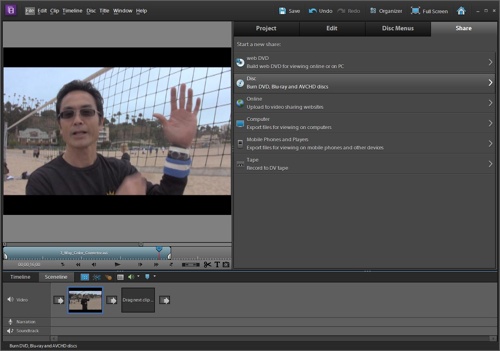At its 2012 Worldwide Developer Conference, Apple announced that OS X Mountain Lion will be available in July as a download from the Mac App Store for US$19.99 (Lion cost $29.99).
Mountain Lion introduces more than 200 features including the all new Messages app, Notification Center, systemwide Sharing, Facebook integration, Dictation, Power Nap, AirPlay Mirroring, Game Center and the Gatekeeper. With iCloud built into the foundation of OS X, Mountain Lion makes it easier than ever to keep your content up to date across all your devices, says Philip Schiller, Apple’s senior vice president of Worldwide Marketing.
Using your iCloud account, Mountain Lion makes it easier than ever to set up your Mail, Contacts, Calendar, Messages, Reminders and Notes, he adds. The new Reminders and Notes apps are designed to help you remember important tasks and jot down your thoughts quickly, while iCloud automatically keeps everything up to date.
Documents in the Cloud works with iCloud-enabled apps including Apple’s iWork suite so you can always access and edit your documents on any device.
The new Messages app replaces iChat and brings iMessage to the Mac, so you can send messages to anyone with an iPhone, iPad, iPod touch or another Mac. You can include attachments, high quality photos and HD video, and your iMessages appear on all your devices so you can pick up a conversation right where you left off. iMessage includes group messaging, delivery and read receipts, typing indicators and secure end-to-end encryption. The Messages app also supports traditional instant messaging services, including AIM, Yahoo!, Google Talk and Jabber.
Mountain Lion streamlines the presentation of notifications, and with Notification Center you can see all your notifications from OS X and third party apps in one place. You can customize which apps send you notifications, the type of notification you receive, and how many items are shown in Notification Center. For example, when you want to focus on your work or watch a movie, you can choose to temporarily suspend all notifications.
New systemwide Sharing is built into Mountain Lion, making it easier than ever to share links, photos, videos and other files, says Schiller. Clicking the Share button allows you to share without having to switch to another app, and you just need to sign in once to use third-party services like Facebook, Twitter, Flickr and Vimeo. Facebook and Twitter are integrated with Notification Center so you can receive notifications when someone sends you a message or mentions you in a post or Tweet.
With built-in support for Facebook, you can post photos, links and comments with locations right from your apps. Once you’ve signed in, your Facebook friends automatically appear in Contacts with their profile photos. Your Facebook notifications work with Notification Center in Mountain Lion, and you can even update your Facebook status from within Notification Center.
Dictation is built into Mountain Lion and allows you to dictate text anywhere you can type, whether you’re using an app from Apple or a third party developer. Mountain Lion also introduces Power Nap, a feature that keeps your MacBook Pro with Retina display and MacBook Air (second and third generation) up to date while it sleeps. Power Nap automatically refreshes Mail, Contacts, Calendar, Reminders, Notes, Photo Stream, Find My Mac and Documents in the Cloud, and when plugged in, downloads software updates and backs up your Mac using Time Machine.
The new Gatekeeper feature makes downloading software from the Internet safer by giving you control over which apps can be installed on your Mac, says Schiller. You can choose to install apps from anywhere, just as you do today or you can set Gatekeeper to allow only apps from the Mac App Store.
The default setting allows you to install apps from the Mac App Store and apps from developers that have a unique Developer ID from Apple. In addition to checking daily for security updates, Mountain Lion includes app sandboxing to keep misbehaving apps from compromising your system, and kernel ASLR for improved protection against buffer overflow attacks.
Additional new features in Mountain Lion include:
° AirPlay Mirroring, an easy way to wirelessly send an up-to-1080p secure stream of what’s on your Mac to an HDTV using Apple TV, or send audio to a receiver or speakers that use AirPlay;
° Game Center, which brings the social gaming network from iOS to the Mac so you can enjoy live, multiplayer games with friends whether they’re on a Mac, iPhone, iPad or iPod touch;
° A faster Safari with a unified Smart Search Field, iCloud Tabs that present your open tabs across your devices, and a new Tab View to quickly swipe through them;
° New features for China, including improved text input, a new Chinese Dictionary, easy setup with popular email providers, Baidu search in Safari, built-in sharing to Sina Weibo and popular video websites Youku and Tudou;
° Over 1,700 new application programming interfaces that give developers access to the latest core OS and web technologies, as well as the newest features of OS X, including Documents in the Cloud, Notifications, Sharing and Game Center.
Mountain Lion requires Lion or Snow Leopard (OS X 10.6.8 or later), 2GB of memory and 8GB of available space. OS X Server requires Mountain Lion and will be available in July from the Mac App Store for $19.99.
The OS X Mountain Lion Up-to-Date upgrade is available at no additional charge via the Mac App Store to all customers who purchased a qualifying new Mac system from Apple or an Apple Authorized Reseller on or after June 11, 2012.


